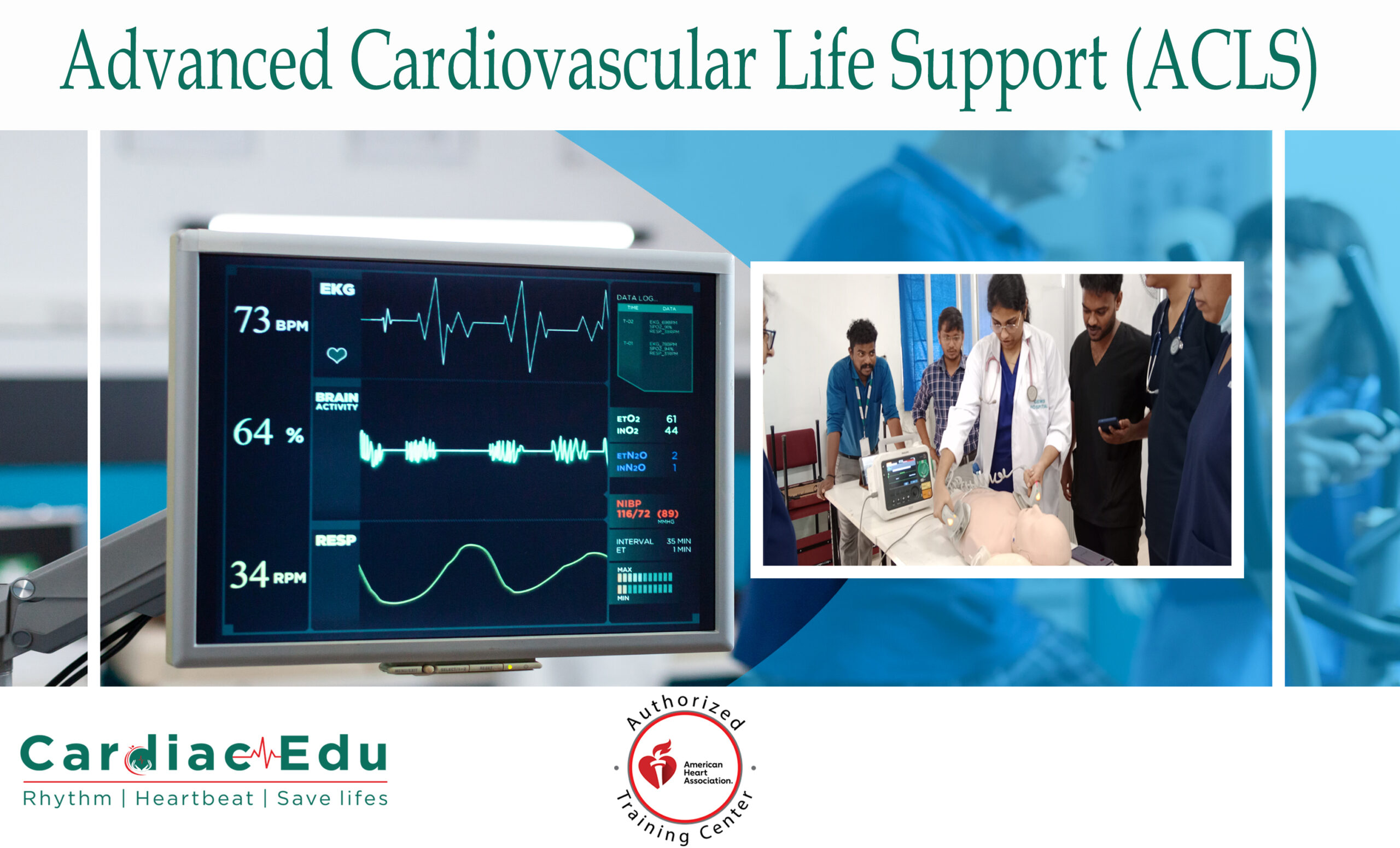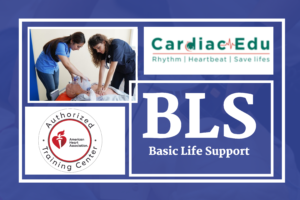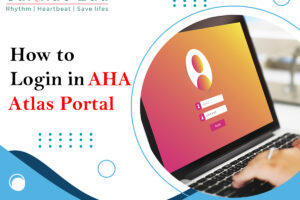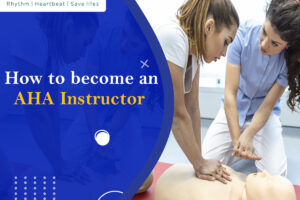What is ACLS?
- Posted by CARDIAC EDU
- Categories Blog
- Date July 5, 2023
- Comments 0 comment

ACLS is Advanced Cardiovascular Life Support.
The American Heart Association’s Advanced Cardiovascular Life Support course is totally redesigned for healthcare providers who either direct or participate in the resuscitation of a patient, whether in or out of the hospital. Through the ACLS course, providers will enhance their skills in the treatment of the adult victim of a cardiac arrest or other cardiopulmonary emergencies. ACLS emphasizes the importance of basic life support CPR to patient survival; the integration of effective basic life support with advanced cardiovascular life support interventions; and the importance of effective team interaction and communication during resuscitation.
ACLS is based on simulated clinical scenarios that encourage active, hands-on participation through learning stations where students will practice essential skills individually, as part of a team, and as team leaders. Realistic simulation reinforces the following keys concepts: proficiency in basic life support care; recognizing and initiating early management of Pre-Arrest conditions; managing cardiac arrest; identifying and treating ischemic chest pain and acute coronary syndromes; recognizing other life-threatening clinical situations (such as stroke (such as stroke) and providing initial care; ACLS algorithms; and effective resuscitation team dynamics.
Course Content & Modules:
* Defibrillation.
* Airway Management.
* Rhythm Recognition.
* IV access.
* Use of medications.
* Cardioversion.
* Transcutaneous pacing
* 1- rescuer, CPR, AED.
* Effective resuscitation team dynamics.
Features & Benefits:
Healthcare providers will enhance their skills in the treatment of the adult victim of a cardiac arrest or other cardiopulmonary emergencies.
ACLS emphasizes the importance of basic life support CPR to patient survival; the integration of effective basic life support with advanced cardiovascular life support interventions; and the importance of effective team interaction and communication during resuscitation.
Students engage in simulated clinical scenarios that encourage active, hands-on participation through learning stations where students will practice essential skills individually, as part of a team, and as team leaders.
Realistic simulations reinforce the following key concepts:
Proficiency in basic life support care
Recognizing and initiating early management of the pre-arrest condition
Managing cardiac arrest
Identifying and treating ischemic chest pain and acute coronary syndromes
recognising other life-threatening clinical situations (such as stroke) and providing initial care
ACLS algorithms
Effective resuscitation team dynamics.
Written Exam & Skill Stations:
The candidate is evaluated through a written exam and practical skill test.
Certification:
ACLS provider Course Completion Card valid for 2 years.
Course Duration: 16 hours.
Intended Audience:
For emergency, intensive care, or critical care healthcare providers such as physicians, nurses, paramedics, respiratory therapists, and other professionals who may need to respond to a cardiovascular emergency
You may also like

What is BLS?

How to Login to AHA Atlas Portal

